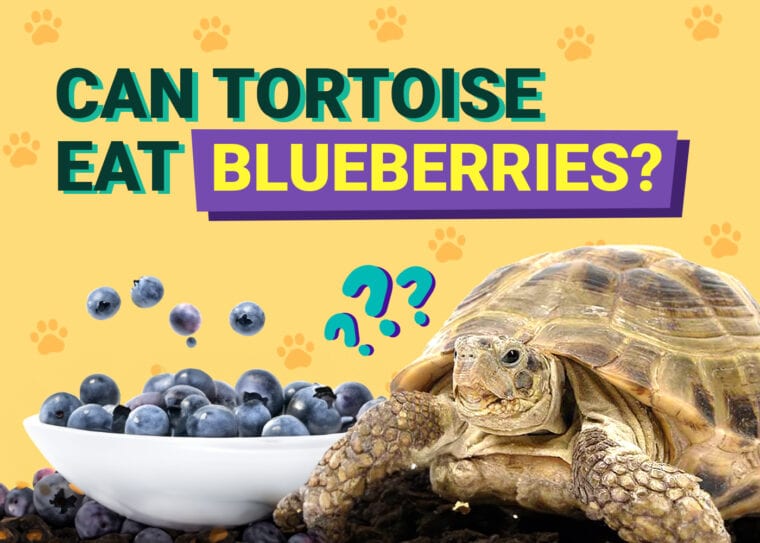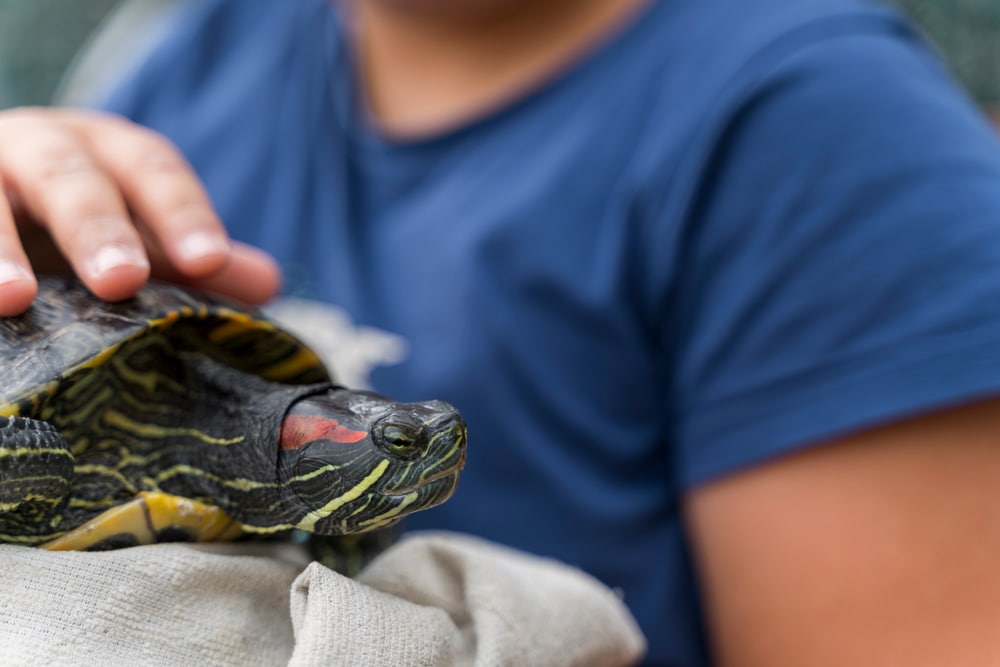
Click to Skip Ahead
Slow moving, land dwelling and plant eating, tortoises are not the most common pet you’ll encounter, but they certainly are fascinating creatures. And given that they have changed very little over the past 50 million years or so, they’re obviously doing something right! So when it comes to taking care of our pet tortoises, we need to make sure we’re doing everything right, and a lot of that comes down to providing them with the right habitat and feeding them the right food.
As far as blueberries are concerned, yes, your pet tortoise can eat them safely. However, they shouldn’t really eat them if fruits aren’t a typical part of their natural diet. Habitat typically dictates what a species may or may not consume. The other factor is nutrition. Tortoises must get adequate vegetation in their diet to maintain healthy gut flora and motility. Is there a place for these tasty berries?
The Ideal Tortoise Diet
The ideal tortoise diet consists of 80% fresh greens, 10% fresh vegetables, and 10% fresh fruits. It makes evolutionary sense that an animal close to the ground would primarily eat vegetation, but the type of vegetation will depend on where they live.
Tortoises often live in semi-arid or arid regions, an apt description of the native habitat of the African Spurred Tortoise, a common pet. Vegetation forms the majority of this animal’s diet. On the other hand, the Leopard Tortoise may also live in grasslands and mountainous areas, exposing it to a wider variety of foodstuffs like fruits and nuts.
The difference is significant. It can determine whether a species is physiologically capable of digesting certain foods. Your tortoise may reject blueberries because they don’t recognize them as something to eat. Even if your pet ate it, they may have issues digesting it properly, leading to GI distress. A general rule of thumb with supplementing a pet’s diet is to offer only small amounts and wait to see what happens.

Nutritional Value of Blueberries
As we’ve said, blueberries aren’t necessarily harmful and are considered safe if fed as an occasional treat, assuming your tortoise eats them. They are actually a highly nutritious food, offering decent amounts of potassium, vitamin C, and phosphorus. It is also rich in antioxidants and fiber.
The most important thing is that your pet gets adequate nutrition. Tortoises are seemingly insatiable feeders. The high proportion of grasses and hay makes it easy to satisfy their voracious appetites, whilst commercial pellets, fruits and vegetables can fill the nutritional gaps. Blueberries are just one of many items that can fulfill this role, providing a healthy, nutritional boost.
Fruits & Vegetables a Tortoise Can Eat Safely
Other fruits and vegetables that are safe for your pet tortoise include the following:
Conclusion
Blueberries offer a nutritious addition to your tortoise’s diet as an occasional treat. However, not all reptiles will accept this food. When it comes to offering any new food, always check with your vet or reptile expert to be certain that what you are feeding is safe. In most cases, offering fruit as an occasional treat will be harmless, but moderation is key.
Featured Image Credit: kimkyungok, Pixabay








